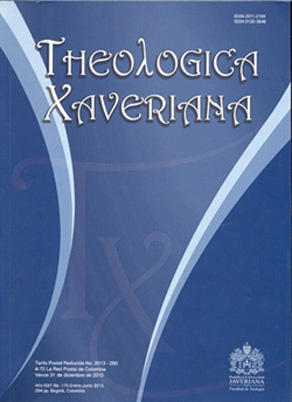Abstract
This paper aims at discussing the text of Mark 10,32-45 under the scope of the Biblical Theology and Foucault’s analytical theory of power. The methodology of this study corresponds to a bibliographical order based on contributions from research on Mark, Mediterranean society in the first century and Foucault’s texts on power. Results show that while Jesus’ disciples seek for power, Jesus proposes a counterargument in order to turn power into solidarity for the community. Jesus intervention brings a discourse about resignation to power and about service and solidarity. These two approaches towards power demonstrate how values that were quite rooted in an ambitious society could be challenged.
This journal is registered under a Creative Commons Attribution 4.0 International Public License. Thus, this work may be reproduced, distributed, and publicly shared in digital format, as long as the names of the authors and Pontificia Universidad Javeriana are acknowledged. Others are allowed to quote, adapt, transform, auto-archive, republish, and create based on this material, for any purpose (even commercial ones), provided the authorship is duly acknowledged, a link to the original work is provided, and it is specified if changes have been made. Pontificia Universidad Javeriana does not hold the rights of published works and the authors are solely responsible for the contents of their works; they keep the moral, intellectual, privacy, and publicity rights.
Approving the intervention of the work (review, copy-editing, translation, layout) and the following outreach, are granted through an use license and not through an assignment of rights. This means the journal and Pontificia Universidad Javeriana cannot be held responsible for any ethical malpractice by the authors. As a consequence of the protection granted by the use license, the journal is not required to publish recantations or modify information already published, unless the errata stems from the editorial management process. Publishing contents in this journal does not generate royalties for contributors.


